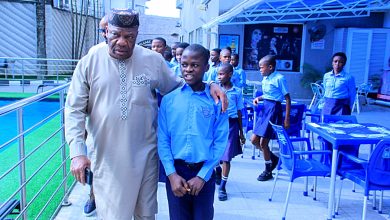Akwa Ibom’s GRESP Policy Delay Puts Schoolgirls at Risk of GBV
Mercy Obot, Uyo
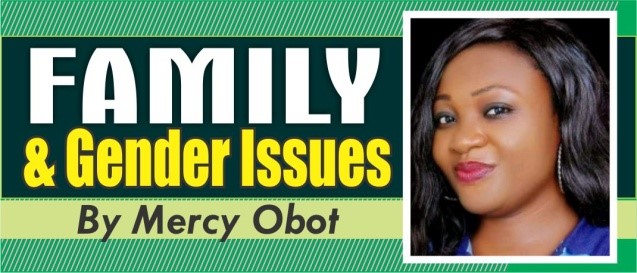
Unreported GBV Cases in AKS Schools
Esther Okon was so delighted to be finally admitted into school at 13 years old. Due to her hearing impairment, she started later than her peers, who are able-bodied students.
One could view Okon’s little stature as she begins her Junior Secondary School (JSS1) studies at a school in Uyo Local Government Area. Sadly, her joy was short-lived when she was sexually abused by her male teacher in the institution.
Sadly, Miss Okon was forced to drop out of school due to her pregnancy, and the incident has been hidden by the school management to protect the reputation of the institution.
A teacher, speaking on the condition of anonymity, revealed to this reporter that the man has a history of harassing girls sexually, exploiting their vulnerability.
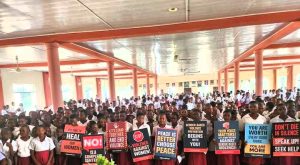
“This male predator is known for sexually exploiting schoolgirls within the institution for years. He is not the only man; other male teachers have been sexually assaulting girls in the school too.
“The teacher, who impregnated the little girl, has accepted to take care of the child; therefore, the case right now is swept under the carpet by the principal, “she lamented.
According to the teacher, Esther’s parents have given their consent for the male teacher to provide financial support to their daughter, thereby opting not to file the report with authorities regarding the sexual abuse.
Right now, Esther Okon sits at the corner of her parent’s house watching her peers go to school daily while she nurtures her growing baby bump. Nobody knows if she will ever resume her education or leave to face the life of illiteracy as a single mother.
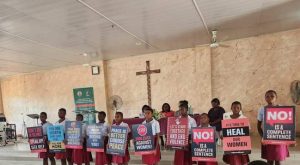
Esther’s tragic story is just one out of thousands of gender-based violence (GBV) cases in the school environment that go unreported because the principals or head teachers conspire with parents to settle the crime of sexual violence internally without involving the appropriate authorities.
The schoolgirls caught up in this ferocious act are left to suffer in silence while most drop out of school. However, their perpetrators roam free, and they continue to perpetuate more cycles of abuse among schoolgirls in the environment due to unreported sexual violence cases.
In an interview with the Director and Head of the Akwa Ibom State Government’s Sexual and Gender-Based Violence Response Department in the Ministry of Justice, Uyo, Barrister Emem Ette confirmed that most gender-based violence incidents in schools, especially those involving male teachers raping female students, remain largely unreported.
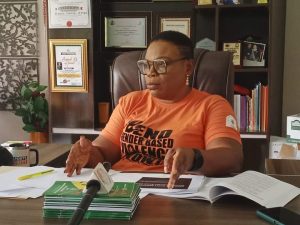
“We don’t have a lot of reports happening in schools; they are mostly private, especially in homes. School management also covers up gender-based violence cases except when someone dies in the process.”
This reporter also asked if there were records of GBV cases in schools, and Barrister Ette responded that there was no separate data for schools.
Meanwhile, a survey carried out by Crystal Express among schoolchildren in Uyo and Oron communities disclosed that apart from sexual violence, which is mostly not reported in schools, female students also face verbal and psychological abuse.
Out of 16 questionnaires disseminated, 10 female students indicated that they were verbally abused either by their peers or teachers in their different respective schools.
Although eight students said if they were abused, they would report it to their teachers, it becomes worrisome if the teacher is the one being verbally abusive; then the child is likely to be emotionally traumatised without knowing who to report the incident.
According to UNICEF, sexual, physical and psychological violence like bullying is strongly associated with negative impacts on student’s mental and sexual health. The report added that “children who have ever experienced one or more forms of violence are more likely to be currently out of school or to have dropped out of school in the past.”
In 2020, the World Bank stated that Nigeria had more than 11 million out-of-school children between the ages of 6 and 15. Also, the National Bureau of Statistics (NBS) 2020 report on women and men revealed alarming numbers of out-of-school children across Nigeria.
Kano State had the highest number of out-of-school children with 989,234. Akwa Ibom followed with 581,800, closely trailed by Katsina (536,122), Kaduna (524,670), Taraba (499,923), Sokoto (436,570), Yobe (427,230), Zamfara (422,214), and Bauchi (354,373).
These statistics reveal that schoolgirls are vulnerable to various forms of abuse in schools, including sexual, verbal, emotional, and psychological exploitation, leading to increased dropout rates in the absence of gender-responsive educational policies.
Consequently, the Akwa Ibom State Government has no Gender Responsive Education Sector Plans (GRESP) to effectively address and prevent gender-based violence among girls and boys in schools. This is worrisome, given that GRESP is a crucial framework for promoting inclusive and equitable educational environments.
Related: A’Ibom Women Advocate For Establishment Of Special Courts To Handle GBV Cases
Failure of the GRESP policy and its implication among schoolgirls in AKS
Despite the state government domesticating the Violence Against Persons (Prohibition) Law and instituting a GBV management committee to implement and reduce gender-related issues in the state, Akwa Ibom State is yet to have an education sector plan (ESP) and gender-responsive policies.
In separate interviews, the Commissioner of Education, Mrs. Idongesit Etiebiet, and the Director of Education Development and Services (EDS), Nse Ekpo, emphasised that the state had no Education Sector Plan (ESP).
The Director of Planning, Research and Statistics, Mrs. Ekama Etiese, said, “Currently, Akwa Ibom State does not have an education sector plan or annual performance review. Although we operate a gender-responsive education system, we lack a policy document specifically addressing girl child education.
“Notably, our state has made significant progress by exceeding girls’ enrolment in schools more than boys.
“We are in the process of creating a comprehensive policy document for the education sector and compiling relevant data and statistics,” she added.
Meanwhile, the state government’s free and compulsory education policy lacks gender responsiveness, having increased girls’ enrolment rates but failing to provide the necessary resources to support their education completion.
According to the Senior Officer at Assisting, Empowering and Caring, ACE Charity, Dr. Hassana Shuaibu, there is a need for education state planning to be gender-responsive because it is the vehicle for identifying gender barriers within education systems and ensuring that strategies and policies are in place to address them through the ESP.
She noted that Gender-Responsive Education Sector Planning (GRESP) addresses gender norms and stereotypes and identifies root causes of gender barriers while instituting policies and practices that affect girls and boys in schools.
Furthermore, this reporter discovered that the lack of GRESP policy in Akwa Ibom State exposed schoolchildren, especially the girls, to a high risk of gender-based violence in their respective schools.
This reporter observed a notable lack of GBV awareness among head teachers, principals, teachers and even students in Uyo and Oron Communities. Even with the distribution of the GBV training manual and a unified referral pathway to aid teachers in addressing issues relating to GBV cases, there was still a knowledge gap between the students and school management.
One of the teachers in Oron LGA, John Utan (not real name), said he thought GBV training was only meant for female teachers, while another teacher in Uyo LGA, Glory Okon (not real name), said she didn’t know what GBV was and it has not been taught in her school. This reporter also found that some schools lacked counsellors, while others did not offer effective counselling services.
Out of 16 questionnaires disseminated to school students in Uyo and Oron Communities, 9 students indicated that they had no school counsellors.
When asked who they would confide in if they encountered any form of abuse, eight students chose their teachers, four mentioned their principals, and only one student ticked the counsellor.
In a conversation with the focal person in the Doro-Voice Initiative, Dorothy Edet said GBV rises in schools due to ineffective counselling services.

“Some counsellors verbally abuse students, using harmful jokes, and are udgmental. For instance, a student confided in us that she reported sexual assault by her brother but was rebuked by the counsellor for her big-sized breast.”.
Moreover, some schools failed to establish a clear and comprehensive code of conduct that categorically condemns GBV, leaving students vulnerable to exploitation. The absence of such a policy framework perpetuates a culture of tolerance and silence that allows GBV to persist in most schools in Akwa Ibom State, especially in communities.
Furthermore, reports revealed a distressing reality: some schools lack basic toilet facilities, thereby exposing female students to an unacceptable risk of gang rape and other forms of sexual violence when they are forced to use school bushes for personal hygiene.
According to the program coordinator in Women In Mediation Network, Mrs. Linda Bernard, “The seemingly mundane issue has far-reaching consequences and has compelled students to drop out of school due to associated safety concerns, emotional trauma, and health risks.”
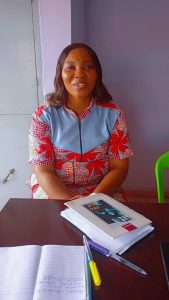
Mrs. Bernard noted that the lack of gender-responsive education sector planning in the state has also caused pregnant students to drop out of school and not return after giving birth. She added that the Gender-Responsive Education Sector Planning (GRESP) framework would have enabled the state government to monitor girls’ completion rates and make provisions for teenage mothers or vulnerable children to return to school.
Related: Lack of Rehabilitation Centers Exposes Sexual Assault Survivors to Further Trauma
Worrying Data of GBV in Akwa Ibom State
Data from the Sexual and Gender Based Violence Response Department in the Ministry of Justice has recorded a total of 1,349 cases of GBV since its establishment in 2021.
The reported cases comprise various forms of gender-based violence, including 369 instances of rape, 118 attempted rapes, 65 abandonment cases, 32 forceful evictions, 54 intimidation cases, 21 stalking incidents, 35 incest cases, and 134 physical abuse cases.
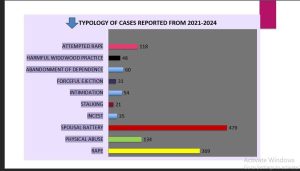
These GBV cases are within the age range of 3 to 55, and this involves girls who have dropped out of school due to the detrimental effects of gender-related issues in the educational environment and their homes.
In an interview with Atan Offot village head in Uyo, HH Eteidung Idongesit Ekong said that sexual violence in most communities is prevalent and needs urgent attention.

“Raping of schoolgirls within communities is very prevalent and rampant. There is no way I will stay here for the complete two months without a case of rape showing up.
“There is still much work to be done and many more strategies to be adopted. Although the sexual and gender-based violence in the state has worked assiduously to curb this menace in society.
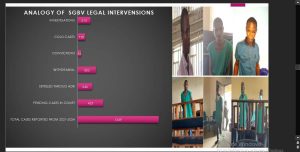
“Many schools across the 31 LGA still need to be sensitised on GBV, especially schools in these rural areas, he noted.
Read Also: GIFA: Putting Smiles On People’s Faces
Government’s GBV Interventions in Schools
In response to the rising cases, the Akwa Ibom State government domesticated the Violence Against Persons Prohibition Law (VAPP) and later constituted the Akwa Ibom State Gender Based Violence (AKS GBV) Management Committee to combat these illicit actions in the state.
Furthermore, there was the establishment of three Sexual Assault Referral Centres (SACs) in Uyo, Ikot Ekpene and Eket senatorial districts in the state to address GBV cases.
Barr Emem Ette, who is the Secretary of the AKSGBV, said the government has distributed GBV training manuals and also trained some school management in public schools on gender-based violence, although some police officers pose a major challenge.
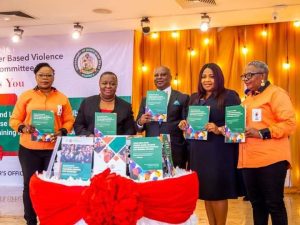
“We have gone to public schools to drop the training manuals to aid teachers to train students and handle gbv cases.
“The state government has also collaborated with some nongovernmental organisations to establish clubs in schools that sensitise the students on GBV.
“We actually printed about one thousand (1000) copies for schools, but we have almost three thousand (3000) schools in the state, and this poses a challenge to us.
“Unfortunately, the committee has a major challenge with the police officers because they are in the position of releasing perpetrators without our knowledge. If security agencies do their work effectively, we wouldn’t have issues.”
A Call to Action
It becomes pertinent that the state government collaborates with NGOs, teacher unions, community leaders, security agencies and other relevant educational stakeholders to design and implement the Gender Responsive Education Sector Plan (GRESP) to address GBV in schools.
Also, there is a need for the state government to allocate sufficient funds to support GBV prevention and train more teachers, particularly in rural areas on GBV.
Training school counsellors on how to manage GBV cases should be mandatory so that there will be effective reporting mechanisms in schools.
Laws and policies should be established to protect students from GBV.
It is also important for the state government to collaborate with more NGOs and community leaders to sensitise schools in rural areas on GBV.
However, designing and implementing the ESP as well as the GRESP need collaborative efforts to combat GBV in schools, just as Barr. Emem Ette noted, “The state government cannot do this alone; we seek partnership with other non-governmental organisations and relevant stakeholders in the state to tackle these social menaces, especially in schools.”
*Esther Okon is not the real name of the GBV Survivor.
*This report is in collaboration with ImpactHouse and System Strategy and Policy Lab (SSPL).


